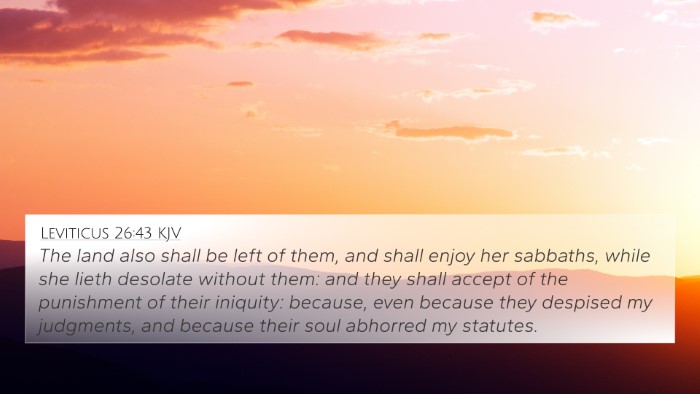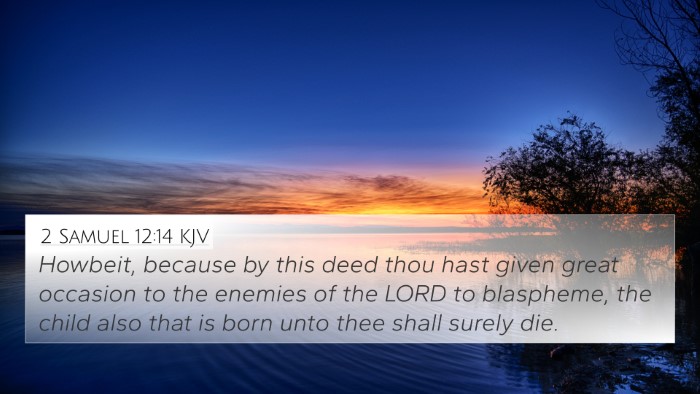Understanding 2 Samuel 24:12
2 Samuel 24:12 reads: "Go and say unto David, Thus saith the Lord, I offer thee three things; choose thee one of them, that I may do it unto thee." This verse represents a pivotal moment in King David's reign when he was faced with the consequences of his actions, specifically, his decision to conduct a census of Israel.
Contextual Overview
In this chapter, God is displeased with Israel and incited David to take a census, which was a significant act seen as an expression of pride and a reliance on numerical strength rather than faith in God. Following this, a prophet (Gad) is sent to deliver God’s message to David, offering him a choice of three forms of punishment.
Theological Insights
This verse reflects the theme of divine authority and the weight of human decisions. Through the prophet Gad, God allows David to determine the nature of the punishment he will face, emphasizing God's justice intertwined with mercy. Let's explore some insights from historical commentaries:
-
Matthew Henry's Commentary:
Matthew Henry emphasizes that this divine message reveals God's patience and methodology in dealing with His people. David, though a man after God's own heart, had strayed, demonstrating that even the faithful are subjected to accountability.
-
Albert Barnes' Notes:
Barnes points out that this form of judgment highlights God’s sovereignty. The three options symbolize choice and consequence, showing that although God is just in punishing, He also grants His servants some agency over their fate, which mirrors God's interactions with humanity throughout Scripture.
-
Adam Clarke's Commentary:
Clarke delves into the significant implications of David’s choice. He believes this scenario illustrates divine governance, where human decisions impact outcomes, hence reinforcing the intertwining of faith and free will within God's plan.
Cross-References
This verse is interconnected with several other Biblical texts that share themes of divine authority, accountability, and punishment. Here are some pertinent references:
- 1 Chronicles 21:10: Similar account where God offers choices to David regarding punishment.
- 2 Samuel 24:1: The beginning of the story where God’s anger is kindled against Israel, leading to the census.
- Exodus 30:12: Instructions on conducting a census and the associated requirements, indicating God's established order.
- Romans 14:12: “So then each of us will give an account of himself to God," echoing the theme of accountability in decisions.
- Hebrews 4:13: Illustrates that nothing is hidden from God, reinforcing the idea of divine oversight over human actions.
- Psalm 51:4: David's heart of repentance reflects the necessity of humility before God’s judgments.
- Galatians 6:7: "For whatever one sows, that will he also reap," correlating with the principle of consequences for actions.
Thematic Connections
This scripture serves as an essential connection point in understanding various Biblical themes, such as:
- Divine Sovereignty: The ability of God to impose choices upon humans reflects His overarching authority.
- Human Responsibility: Each choice has consequences, demonstrating the agency granted to humanity by God.
- Repentance and Forgiveness: David’s narrative progresses towards repentance, illustrating the path to restoration.
Practical Applications
As believers study 2 Samuel 24:12, they are invited to reflect on personal accountability and the gravity of decisions made in their lives. Choosing wisely under the guidance of faith can lead to blessings rather than repercussions.
Conclusion
2 Samuel 24:12 serves as a poignant reminder of the relationship between divine authority and human choice. The interplay of consequences within this scripture encourages readers to delve deeper into their understanding of faith and the complexities of God’s justice and mercy.











